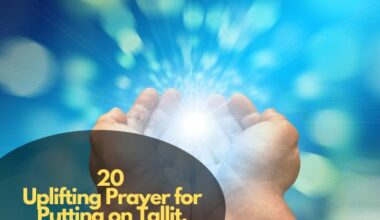Table of Contents Show
To Pray Or Not To Pray? Prayer, in its essence, is a manifestation of human connection, a conduit through which individuals seek solace, guidance, or an expression of gratitude to the divine or the universe. It transcends the mere recitation of words; it’s an intimate dialogue, a beacon of hope during times of turmoil, and a moment of serenity in life’s chaotic rhythm.
The diversity in prayer practices, rituals, and interpretations is a testament to its profound impact on cultures and societies worldwide. As we embark on this exploration, let us embrace the multiplicity of viewpoints, acknowledging the intricate tapestry that prayer weaves across humanity.
To Pray Or Not To Pray
Prayer. A simple word, yet loaded with layers of meaning, history, and controversy. It’s an act as ancient as the stars, practised by countless cultures and faiths across time. But in our modern world, with its emphasis on logic and evidence, the question arises: in a world seemingly governed by natural laws, is prayer still relevant? Should we continue the age-old practice, or is it time to let go of an outdated ritual?
Arguments for Prayer:
- Inner Peace and Purpose: For many, prayer is a source of solace and strength. It fosters a connection with a higher power, offering a sense of purpose and belonging. The act of surrendering anxieties and fears in prayer can bring calm and acceptance, even in the face of turmoil.
- Gratitude and Reflection: Prayer reminds us to appreciate the blessings in our lives, however small they may seem. It encourages introspection and helps us re-evaluate our priorities and actions. In the quietude of prayer, we can rediscover our values and reconnect with our authentic selves.
- Community and Connection: Prayer often becomes a shared experience, binding communities together through faith and common purpose. Group prayers provide a sense of belonging and offer support during difficult times. They strengthen solidarity and can inspire collective action, fostering empathy and compassion.
- Mysterious Benefits: Science is only beginning to understand the mind-body connection and the potential impact of prayer on our well-being. Studies suggest prayer can modulate stress responses, boost the immune system, and even lower blood pressure. While the mechanism remains unexplained, the positive effect on health cannot be ignored.
Arguments Against Prayer:
- Ineffectiveness: Critics argue that prayer is simply wishful thinking, offering no tangible results in the material world. They point to natural disasters and human suffering as evidence that prayer doesn’t change outcomes. This viewpoint discounts the potential internal transformations prayer can offer, focusing solely on external intervention.
- Division and Misuse: Throughout history, prayer has been used to justify wars, discrimination, and the repression of dissent. When manipulated for personal gain or to enforce specific agendas, prayer loses its sacred essence and becomes a tool for division and harm.
- Exclusivity and Doubt: Many faith-based prayers target specific deities or follow prescribed rituals, potentially excluding those who hold different beliefs or lack faith altogether. This can create a sense of alienation and raise questions about the universality of a practice rooted in specific doctrines.
- Individual Responsibility: Critics argue that focusing on prayer can divert attention from taking concrete actions to solve problems. They emphasize the importance of personal responsibility and agency in making the world a better place, suggesting that prayer alone is not enough for meaningful change.
Beyond the Binary:
The “to pray or not to pray” debate often boils down to a false dichotomy. It’s not an “either-or” choice, but a spectrum of possibilities. Each individual must navigate this labyrinth of belief and decide what form of prayer, if any, resonates with their spirit. Some may find solace in traditional rituals, while others may explore meditative practices or acts of service as forms of personal communion.
Ultimately, the answer lies within. What brings you peace, comfort, and a sense of connection? Whether through formal supplication, silent reflection, or acts of kindness, the essence of prayer lies in the deliberate turning inwards, in seeking meaning and purpose beyond the mundane. It’s about forging a connection with something larger than ourselves, whatever that may be for each individual.
Conclusion
In human existence, the choice of whether to pray or not stands as a testament to individual autonomy and belief systems. This contemplation isn’t confined to a binary decision but encapsulates a spectrum of experiences, ideologies, and emotions.
As we conclude this odyssey of understanding, it’s imperative to embrace the diversity inherent in human beliefs. The power lies not just in the act of prayer or its absence, but in our collective respect for the choices that shape our spiritual and philosophical paths.
Frequently Asked Questions
1. Can prayer be effective for individuals who do not follow a specific religious tradition?
Absolutely. Prayer is a deeply personal and spiritual practice that transcends religious boundaries. It can be a means of connecting with one’s inner self, expressing gratitude, and seeking guidance, irrespective of religious affiliation.
2. How can one cultivate a consistent prayer practice?
Cultivating a consistent prayer practice involves finding a routine that works for you. This may include setting aside dedicated time daily, creating a sacred space, using prayer aids or scriptures, and approaching prayer with an open heart and mind.
3. Can prayer have a positive impact on mental health?
Yes, prayer has been found to have a positive impact on mental health. It can help reduce stress, promote feelings of calmness and well-being, and provide a sense of comfort and support during difficult times. Prayer can also foster a sense of hope, gratitude, and connectedness, which are all beneficial for mental well-being.








